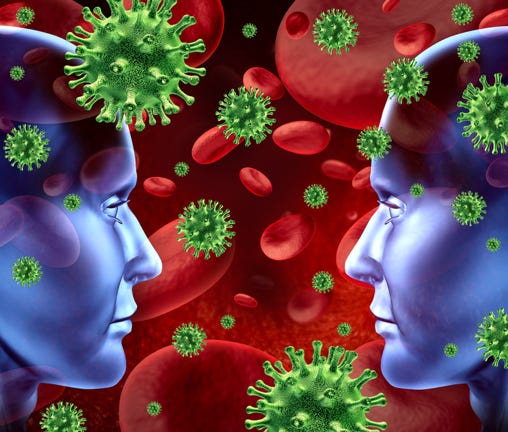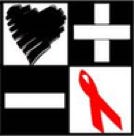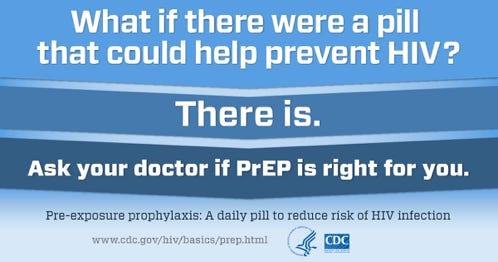Hours of Operation
Monday - Thursday:
9am - 5pm
Friday:
9am - 12:30pm
phone: 337.439.5861
800.256.5145
Calls received on weekends, holidays, or after hours are directed to our answering service.
Tuesday - Thursday
11am - 4pm ONLY
Bingo
Hours of Operation
Monday - Thursday:
9am - 5pm
Friday:
9am - 12:30pm
phone: 337.439.5861
800.256.5145
Calls received on weekends, holidays, or after hours are directed to our answering service.
Tuesday - Thursday
11am - 4pm ONLY
Bingo
1 in 2 people with HIV have had the virus at least 3 years before their diagnosis.
(Although this website provides general information regarding HIV, this information DOES NOT constitute medical advice and should not be used as such. The information is NOT intended to diagnose or treat any health issues and is NOT a substitute for professional medical treatment or consultation. All information on this site is intended for educational use only. Visit a qualified physician or health care provider regarding individual health-related needs, concerns,treatment, or questions.)
About 40% of new HIV infections come from people who do not know they are HIV+

U=U: Undetectable Equals Untransmittable
When HIV treatment successfully brings viral load levels within the body so low that they cannot be detected with medical tests (as determined by a medical provider), a person living with HIV is considered to be undetectable.
When the HIV virus is undetectable in the body, it cannot be transmitted to other people.
You CANNOT get HIV from:
• Someone spitting on you
• Mosquitoes
• Hugging or holding hands
• Kissing (unless both parties have cuts or sores)
• Tears from someone who is crying
• Sharing eating utensils or plates
• Sitting on a toilet seat
• Washing clothes in the same washing machine
• Body piercings (as long as only new needles or ink are/is used)
• Swimming pools
• Sneezing or coughing
Disclosure
• Disclosure (of YOUR) positive HIV status is at YOUR discretion.
• You do not have to disclose to your employer.
• However, you MUST disclose to someone with whom you are consenting to have sexual activities.
• You CANNOT disclose someone else’s status.
HIV is a virus that infects the body, attacking the immune system (which defends against germs and diseases), spread through certain bodily fluids. These fluids include:
• Semen
• Vaginal fluids
• Blood
• Breast milk or childbirth (if the mother is not in treatment)
At least one of these fluids must enter a person’s body in order for infection to be transmitted. This most commonly happens during unprotected sex (without the use of a latex condom or HIV treatment or preventative medication) or the sharing of injectable drug needles.
If untreated, HIV infection can leads to AIDS (Acquired Immune Deficiency Syndrome.)
A virus is a small “germ” that enters the body and can make one ill. HIV (Human Immunodeficiency Virus) attacks the immune system’s T-cells, also known as the CD-4 cells, which combat infections in the body. These cells recognize bacteria and foreign viruses and make helpers to fight the germs. If left untreated, a large number of these immune cells can be killed by the virus, preventing the body from fighting off diseases and opportunistic infections.
Someone with HIV can infect others, even if he or she does not feel or look sick. It is not possible to tell by looking at someone whether or not they are infected with HIV, as they may appear healthy. An HIV test is the only way to be sure if a person is infected.
The progression of HIV’s damaging effects on the immune system can lead to AIDS - the last stage of HIV infection; a disease in which the body’s immune system is weakened. Once the immune system is weakened, there is the potential to develop a variety of life-threatening illnesses. Although HIV-infected, with proper treatment and care, many people never develop AIDS.
Although successful preventative medicine has begun to emerge, currently, there is no cure for HIV infection. However, proper medical treatment can control HIV , keeping viral loads suppressed and CD-4 counts higher. Antiretroviral therapies (ART) are daily prescription medications used to preserve the health of infected individuals, decrease the chance of transmission, combat the virus, and prevent progression into AIDS. Prompt medical care is advised if a person receives a positive diagnosis.
Currently, there are various treatments available, which can slow or halt the progression of HIV infection. Anti-retorviral medications can help control HIV infection by raising the CD-4 count and lowering the viral load.





